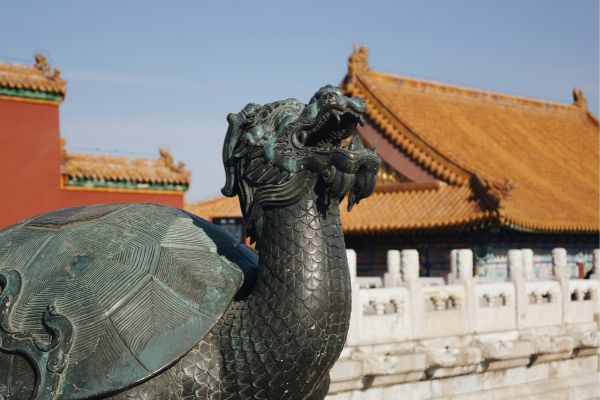
On what basis would Chinese courts examine the arbitral awards made by foreign arbitration institutions in mainland China, the New York Convention or Chinese domestic law? The answer is the latter.
As mentioned in my previous post, foreign arbitration institutions can be stationed in some free trade zones in mainland China, setting up business organizations and conducting arbitration business.
So, what is the nationality of the arbitral awards made by these business organizations in China? Are they foreign awards or Chinese awards? The answer is foreign awards.
Under such circumstances, will Chinese courts examine them in accordance with the New York Convention? The answer is no.
That is to say, despite being regarded as foreign ones, the awards made by foreign arbitration institutions located in mainland China will be examined in accordance with China’s domestic law.
By contrast, in the early years when foreign arbitration institutions could not set up business organizations in China, they had made arbitral awards in China. At that time, Chinese courts either did not recognize such arbitration agreements or arbitral awards (see “the Case of Züblin International GmbH” [1]), or considered them non-domestic arbitral awards, and examined them in accordance with the New York Convention (see “the Case of Duferco S.A.” [2]).
I will analyze why this difference occurs in the following text.
I. How to Examine Such Awards?
1. Such awards are classified as foreign awards
According to the nationality of the arbitral awards, China usually divides them into three groups: purely domestic arbitral awards, foreign-related arbitral awards and foreign arbitral awards, the former two of which are Chinese awards. The nationality of the award determines the condition of examination applied by the court.
As for the nationality of arbitral awards, Article 283 of the Civil Procedure Law of the People’s Republic of China (hereinafter referred to as the CPL) adopts the institution-based standard, that is, the nationality of the arbitral award is determined based on the nationality of the arbitration institution. Therefore, the “awards of foreign arbitration institutions” made in China are regarded as foreign arbitration awards rather than domestic arbitration awards. In other words, for the business organizations of foreign institutions in China, the awards they make in mainland China are obviously not domestic awards, but special foreign awards.
2. Such awards are not governed by the New York Convention
Despite being foreign awards, recognition and enforcement of such awards in China are not governed by the New York Convention. This is because on the occasion of China’s accession to the New York Convention, China has made a “reciprocity reservation”, that is, the Convention applies only to awards made in the territory of another contracting state. This excludes awards made by foreign institutions located in mainland China, since such awards are not made in the territory of another contracting state.
For the reasons above, although these awards are foreign awards, they should still be examined in accordance with China’s domestic laws such as the CPL and the Arbitration Law, rather than the New York Convention.
So, as mentioned earlier, this is a “special” foreign arbitral award.
3. How to examine special foreign arbitral awards
(1) Such awards are enforceable without recognition
Since these awards are not governed by the New York Convention, but the domestic law of China, they should be enforced by the court directly upon application as Chinese arbitral awards without being recognized by the court.
(2) Such awards may be set aside
For the same reason above, such arbitral awards, if erroneous, could be set aside at the request of relevant parties. The court should examine whether there are grounds for the setting aside of these awards in the same way as in that of Chinese arbitral awards.
II. Which Court Should Review Such Awards?
For Chinese arbitral awards, pursuant to Article 58 of the Arbitration Law, the relevant parties may apply to the intermediate people’s court in the place where the arbitration commission is located for setting aside the erroneous award.
For foreign arbitral awards governed by the New York Convention, the relevant parties may apply to the intermediate people’s court in the place where the respondent or his/her property is located for recognition and enforcement of the award. Therefore, the same court shall exercise jurisdiction over foreign arbitral awards.
However, as a special foreign arbitral award, the awards made by foreign arbitration institutions’ Chinese business organizations do not fall under any of the foregoing situations. The first reason is that the headquarters of these foreign arbitration institutions are not located within the territory of China, so there is no Chinese court fits the criterion as the place of the arbitration institution. Secondly, given such arbitral awards are not governed by the New York Convention, the court in the place where the respondent or his/her property is located does not have jurisdiction therefor.
In view of this, in the future, China is most likely to seize upon the innovation of FTZs’ rules on arbitration-related judicial reviews as a reform opportunity, and to make a change in jurisdictional rules, replacing the standard of “place of the arbitration institution” with that of “seat of arbitration”. Only in this way can we possibly solve the current dilemma.
References:
[1] 德国旭普林国际有限责任公司申请承认和执行国外仲裁裁决案,中华人民共和国江苏省无锡市中级人民法院(2004)锡民三仲字第1号民事裁定书。
[2] DUFERCOS.A.(德高钢铁公司)申请承认与执行ICC第14006/MS/JB/JEM号仲裁裁决案,中华人民共和国浙江省宁波市中级人民法院(2008)甬仲监字第4号民事裁定书。
Cover Photo by Justin Lim(https://unsplash.com/@justinlim) on Unsplash
Contributors: Jian Zhang 张建









